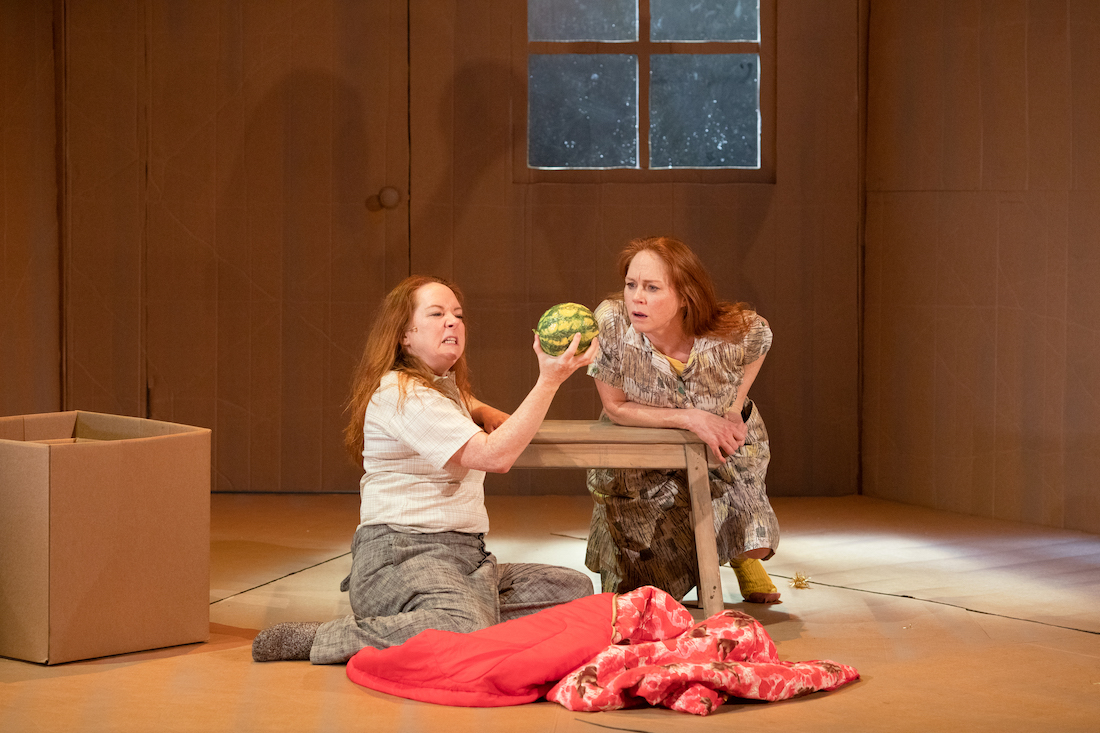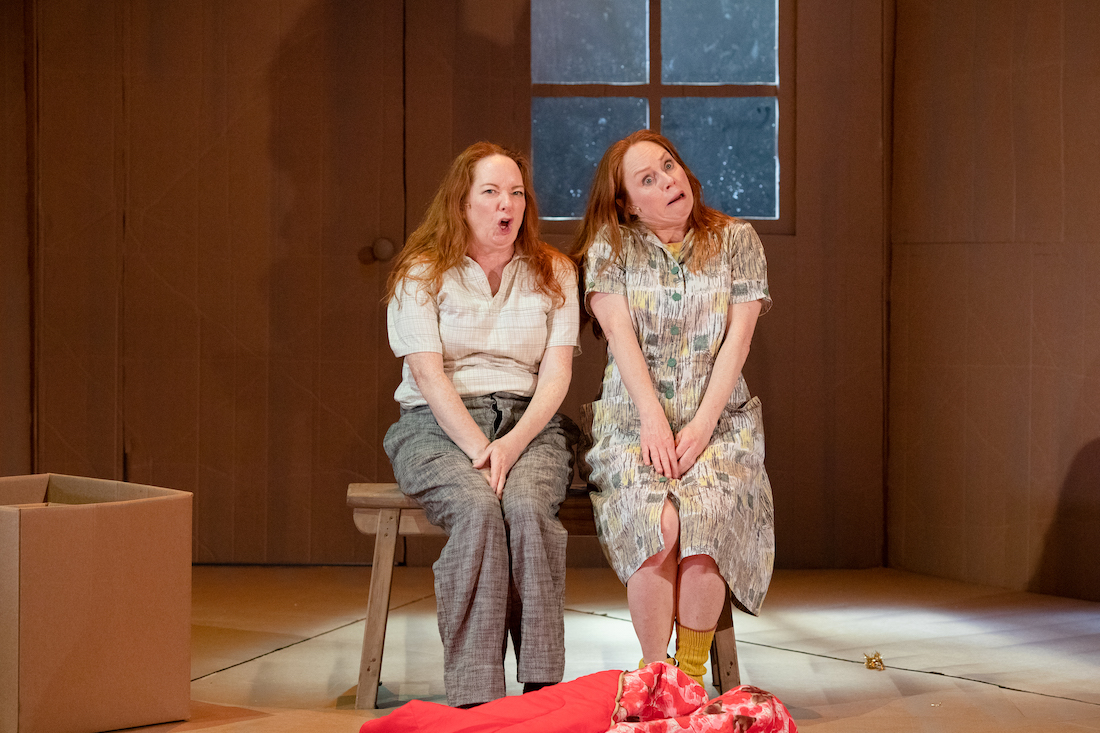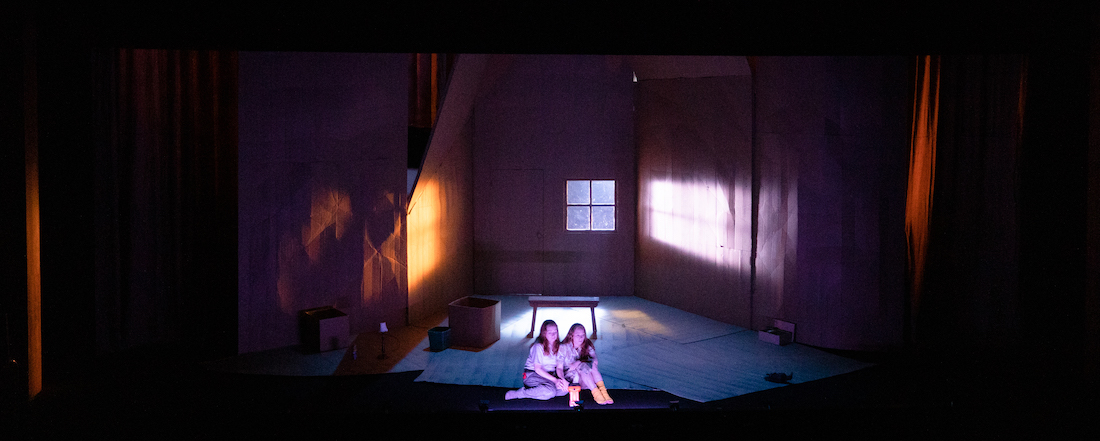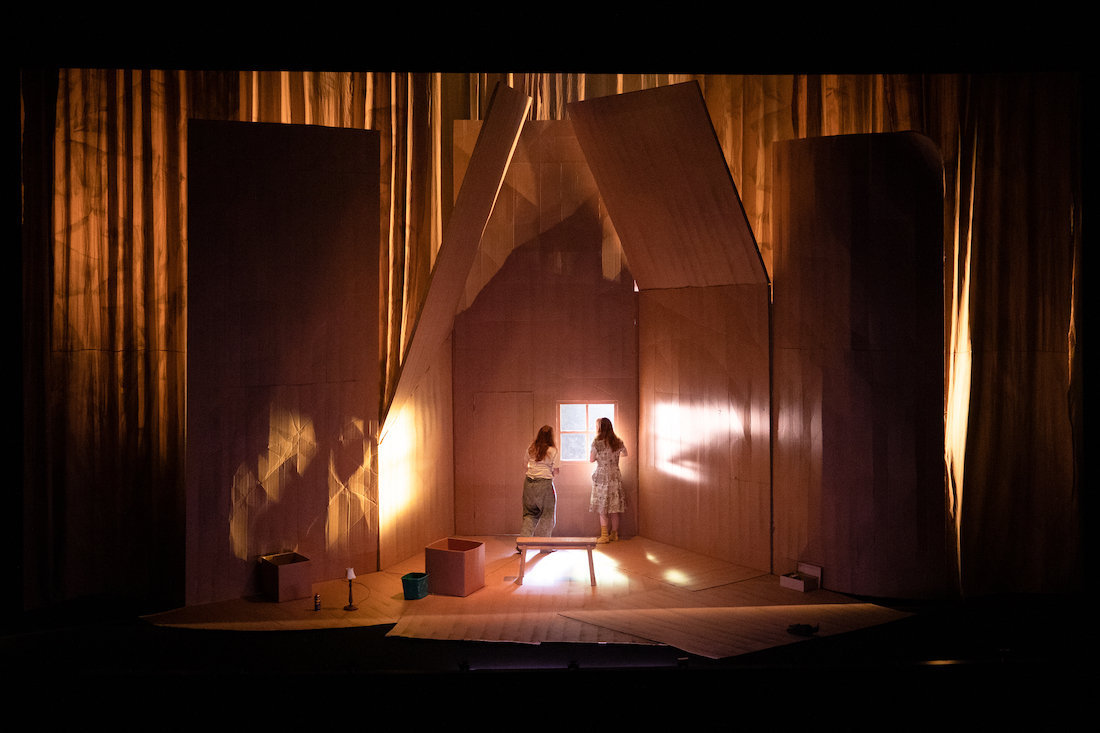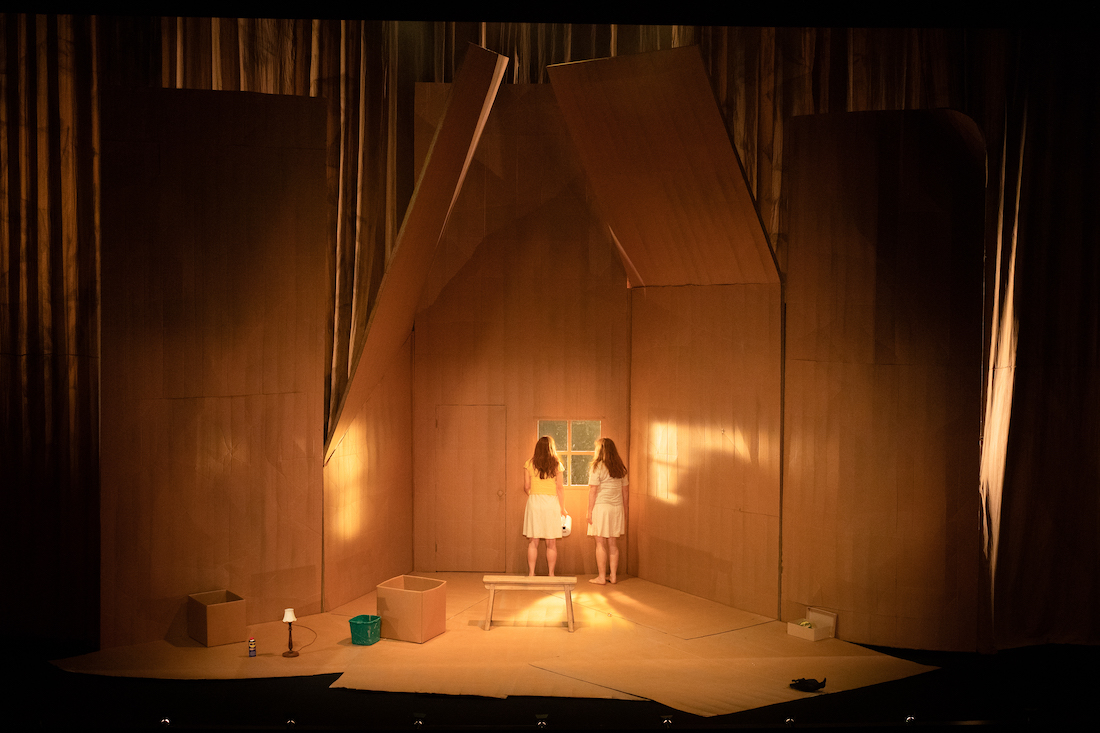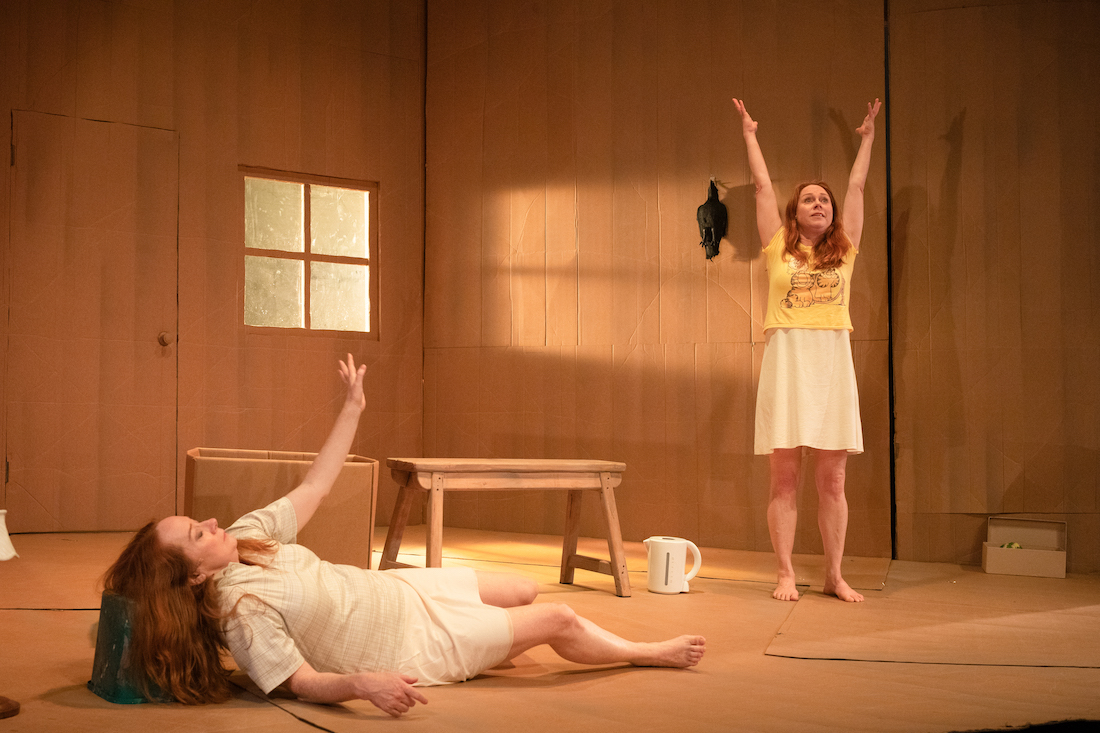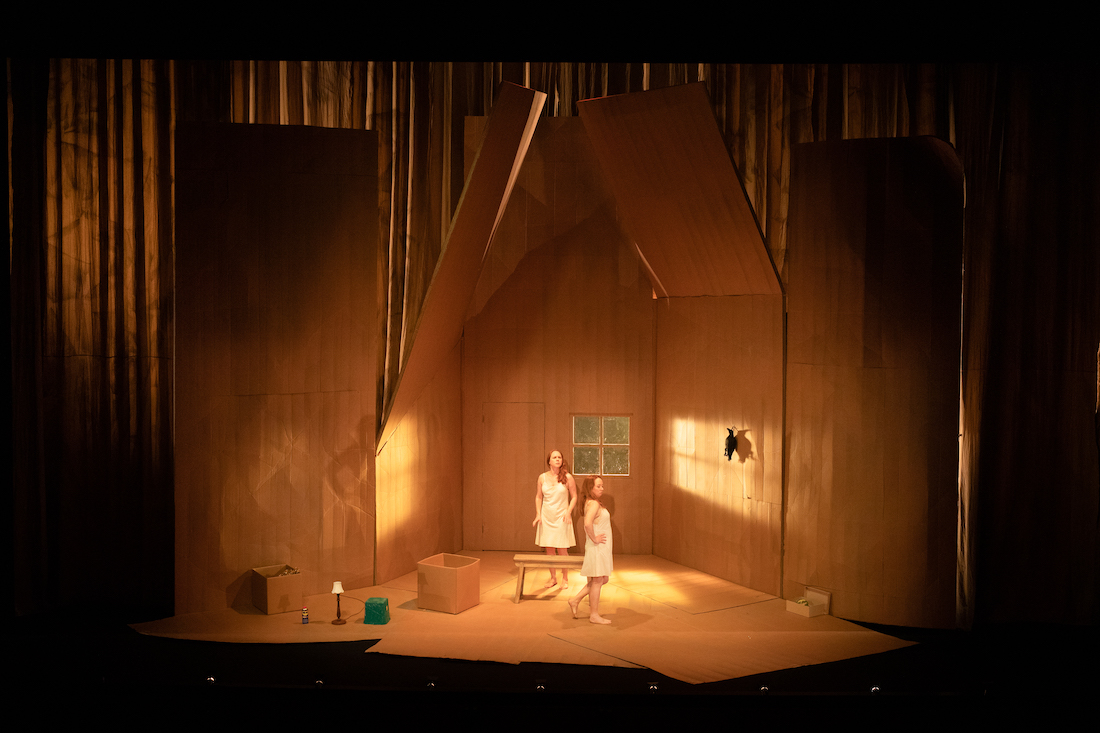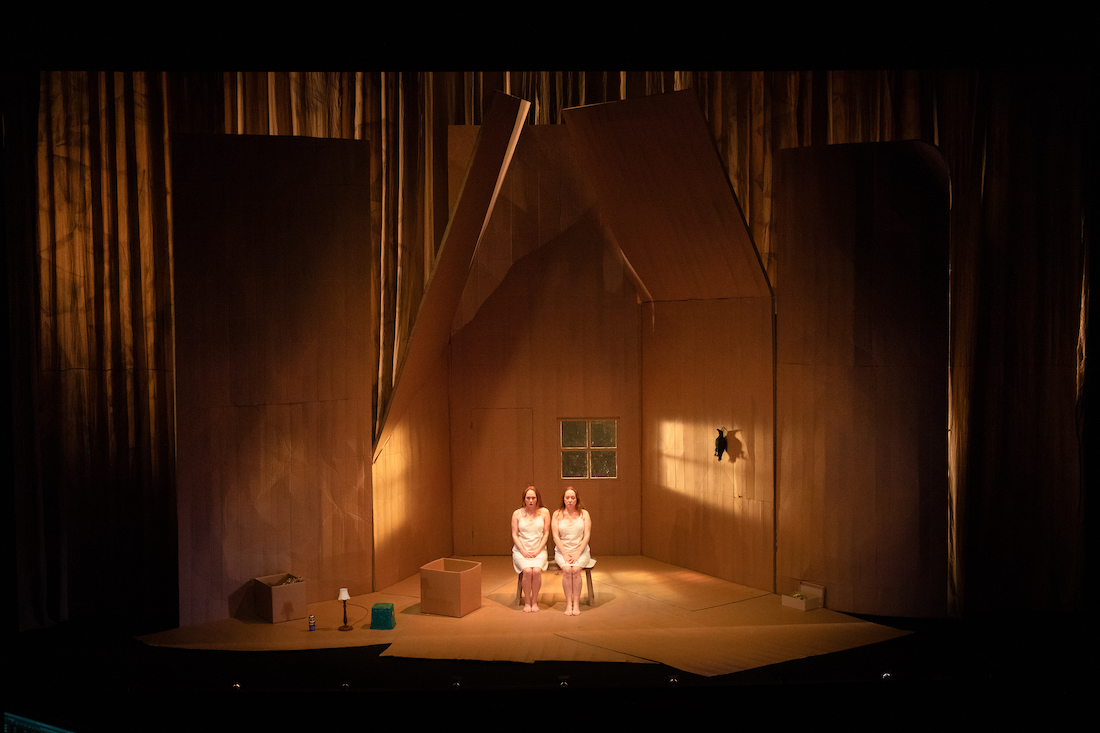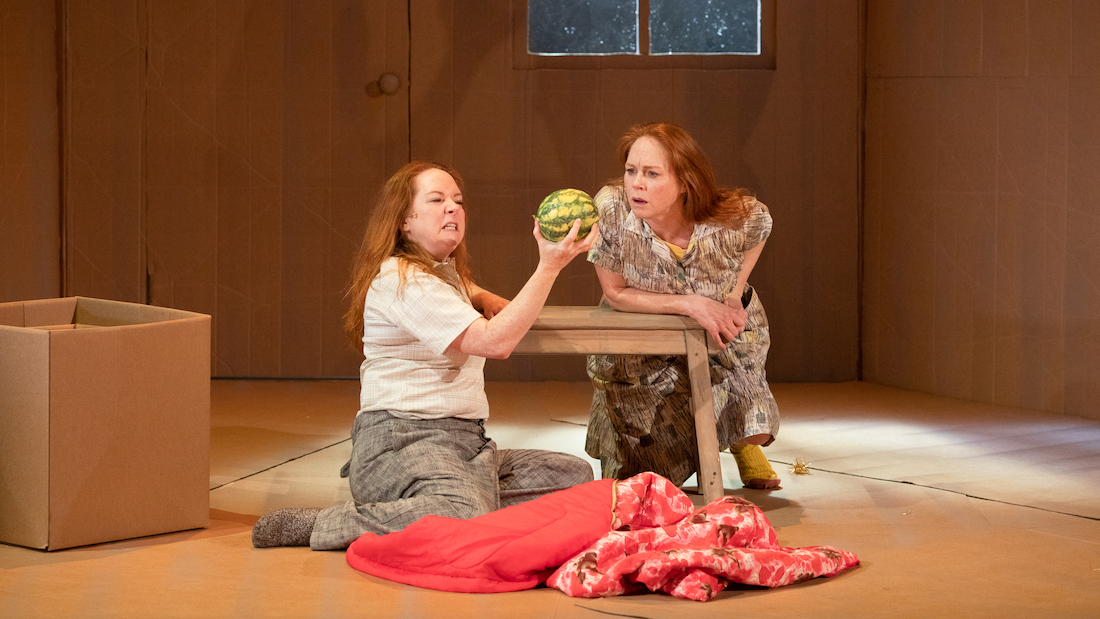
Review: Dirty Birds at The State Theatre Centre of Western Australia
Dirty Birds at The State Theatre Centre of Western Australia
Wednesday, November 22, 2023
Two Australian acting powerhouses meet and combine in Dirty Birds, a story of connection, fear, and hope.
The launch of Dirty Birds on Wednesday night was most certainly a family affair, not in the least because of its lead actresses (and writers), sisters Hayley and Mandy McElhinney. Debuting their first collaborative piece, Dirty Birds, the McElhinney sisters were outspokenly humble in their post-show acknowledgements, recognising the sense of community that was deeply entrenched in the production and delivery of the show.
Likewise, the show itself was deeply resonant with themes of familial love, deep-rooted familial frustration, and a kind of emotional interdependency between Mandy and Hayley's on-stage personas, which grounded the absurdist narrative.
The pair portray sisters whose borderline agoraphobic refusal to enter the outside world leaves them confined mostly to the walls of their home. Within the almost claustrophobic, self-maintained confinement, the pair journey through personal challenges and trials, confronting anxieties around death, separation, and identity.
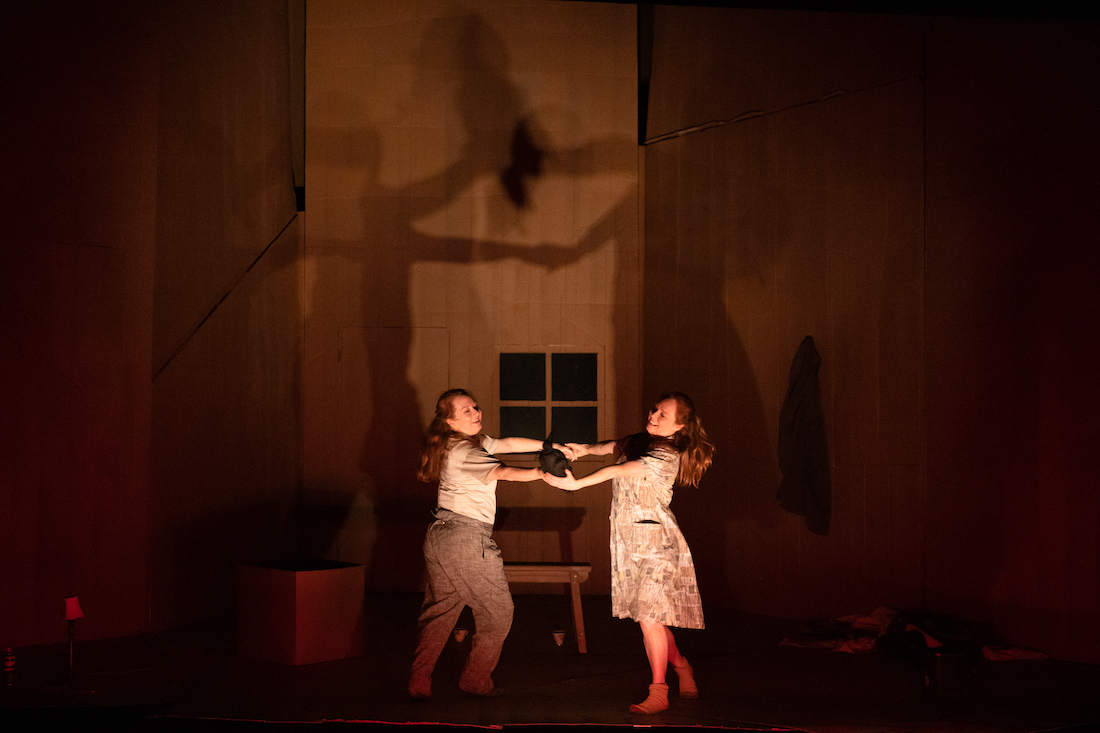
Dirty Birds
The play effortlessly nailed the humour that is so sorely needed in entertaining absurdist pieces, with so many moments in the production eliciting genuine laughter from the crowd, particularly arising from the witty, rapid-fire dialogue between the sisters. Both performers' comedic timing and seemingly natural mastery of pace and tone were starkly on display, delivering a piece that was spectacularly dynamic. The piece avoided with ease the dreaded stagnation that so many absurdist texts fall easily into. This is also due to the influence of director Kate Champion and her visionary staging of the piece.
The absurdism of the piece is strongly grounded in a very real and poignant contemplation of connection, particularly in this case, that between siblings. In many ways, the absurdism of the piece becomes transient, achieving an almost post-absurdist clarity in its relatable and universal narrative about unconditional love and acceptance.
Mandy McElhinney's portrayal of the lethargic, home-keeping, and deeply anxious sibling is tempered by Hayley McElhinney's energetic and deeply frustrated performance. Throughout the piece, their movement apart and together, both emotionally and physically, in the stage design and choreography beautifully acknowledges the dynamism of human connection and relationships, yet always sees them return to each other.
Wistful, melancholy, and deeply contemplative, a deeply-rooted sense of anxiety and fear pervades the humour and lighter mundanity of the piece. With the ever-encroaching anthropocene that delivers death to their door and threatens to separate the siblings, as a physical metaphor for myriad dangers or an utterly fabricated figment of the agoraphobic mind, the characters' 'journey' is a strongly introspective one.
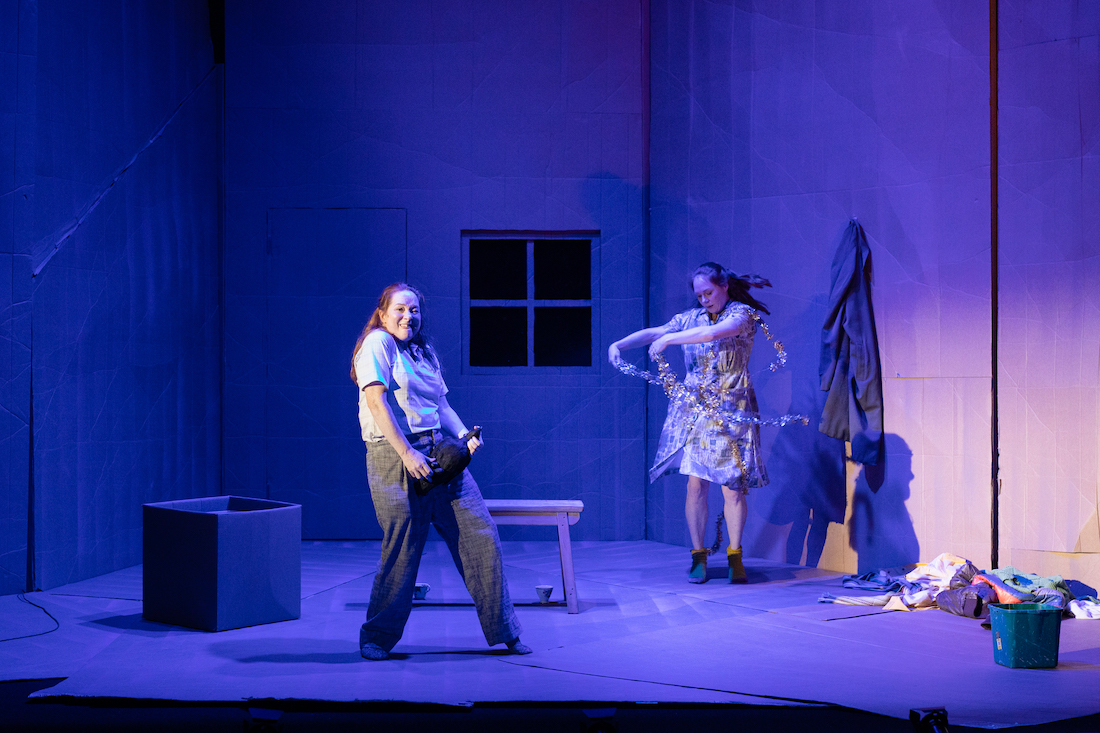
Dirty Birds
The set and lighting design of the show deserve strong commendation. With walls made of towering cardboard, the staging creates a space of deep claustrophobia that seems to compress the siblings, in as much as it also shields them in a sort of makeshift domesticity and provides a blank canvas for their adventures. With a minimal selection of props, thoughtful choreography within the space is the greatest driver of the physical narrative elements.
Likewise, the clever arrangement of lighting throughout the piece is an exercise in masterful storytelling, creating vivid scenes of indoor and outdoor environments as well as more subtle moments of domestic safety, domestic anxiety, and confinement. It takes a certain talent to emphasise in one moment a sense of claustrophobia that is almost suffocating and, in another, create a space that is immeasurably wide.
Overall, Dirty Birds was an exercise in poetic absurdity. The attention to detail in every element of the storytelling process was deeply apparent and aided in the production of a highly resonant piece.
While absurdism is not always a universally enjoyed genre of theatre, and thus this show may not appeal to those looking for a more easily accessible theatre experience, even still, the universality of the piece's themes and the deep emotionality of its messages render it a profound and enjoyable experience and a production not to miss.
BEC WELDON
Photos by Daniel J Grant

